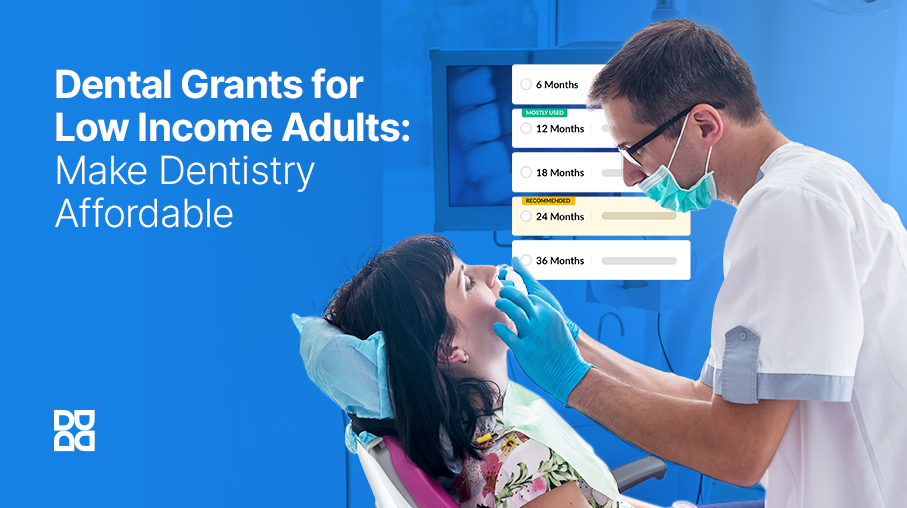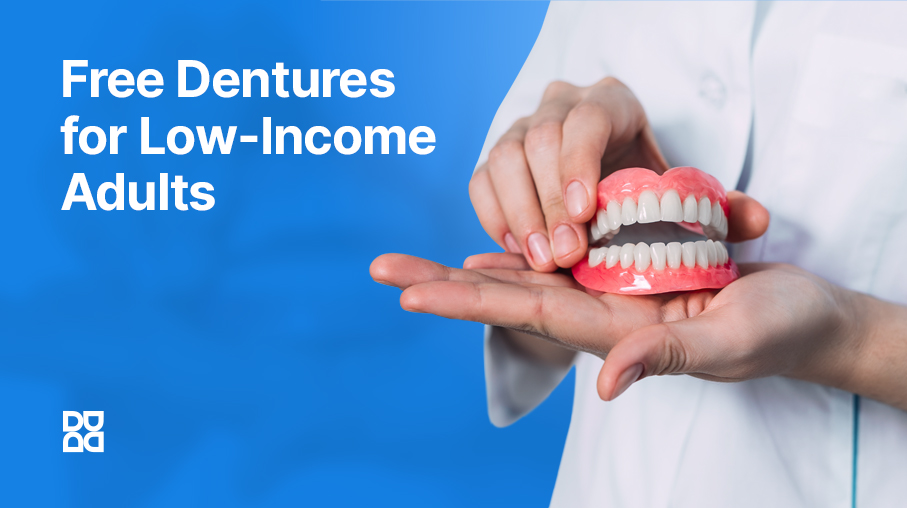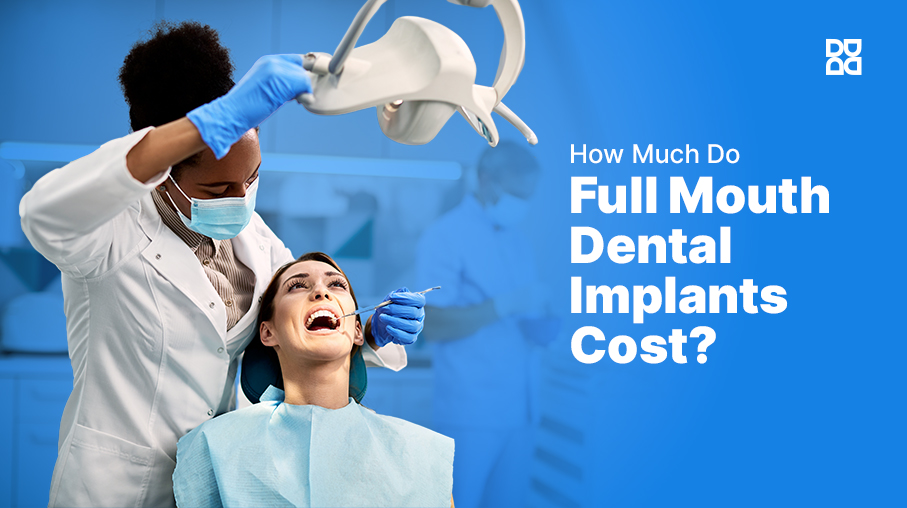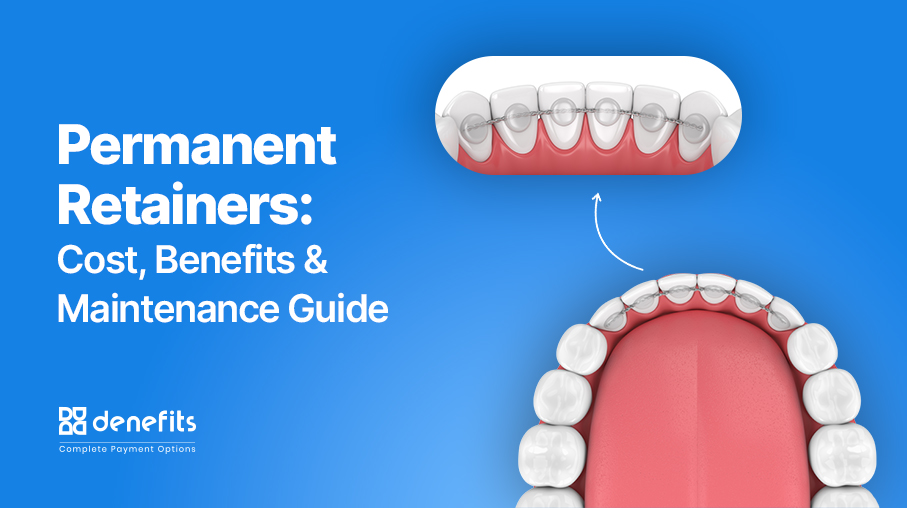
Recent studies show that adults with lower incomes are likelier than those with higher incomes to report cost as a barrier to seeing a dentist.
Oral health significantly contributes to the overall well-being of an individual. However, financial constraints often cause people to delay timely dental care, even in dire need. And this includes procedures like dental implants, which can seriously affect one's quality of life and health.
So, how can patients manage the high costs of dental implants and cosmetic dentistry?
In this blog, we'll explore how dental grants for low-income adults can help pay for implants and cosmetic dentistry. Further, we'll discuss how you can use dental payment plans instead if you can't find a grant that works for you.
Now, what exactly do dental grants or dental implant grants entail? What expenses do these free government grants for dental implants address? Finally, who can benefit from these grants, and to what extent?
Dental Grants for Low-Income Groups
If you often find yourself searching for "Government grants for dental implants near me", you should know that there are organizations that offer them. Although, you should meet the eligibility criteria. A few are as follows:
◾Smiles Change Lives: It's an organization that provides orthodontic treatment grants to low-income children, and adults, in some cases.
◾Access to Care: The American Academy of Pediatric Dentistry offers this annual grant program to fund dental services that target underserved children.
◾Samuel Harris Fund: It offers dental grants exclusively for single mothers in collaboration with organizations dedicated to supporting mothers and caregivers.
E. Bud Tarrson Dental School Student Community Leadership Award: It recognizes dental students leading volunteer community service projects within the United States. The grant supports research and outreach initiatives aimed at underserved populations.
Dental Implant Grants by Category
➡️ For Seniors
Low-income seniors in need of dental implants can explore various cosmetic and implant dentistry grants. Local community health centers can help you find nearby clinics with implant grants for seniors. Moreover, health centers themselves may also receive grants. The American Dental Association Foundation offers ADA Foundation Senior American Access to Care grants. It benefits non-profit organizations that offer dental care to underserved individuals aged 62 and above.
➡️ Veterans' Dental Care Grants
Veterans seeking dental care grants can turn to organizations that offer comprehensive dental care to veterans for free through participating dentists. Such organizations usually receive funding from foundations like the ADA Foundation
➡️ For Disabled People
There are various organizations funded by the ADA Foundation that offer dental implant grants to disabled people as well as the elderly and medically fragile. So, you can turn to them while searching for dental grants options.
Dental Grants Options
◾DentaQuest Community Response Fund
DentaQuest aims to help community health centers around Pennsylvania improve access to dental services for those in need. They offer dental grants and funding to achieve this. It presents a good option for individuals looking for dental implant grants to get needed work done.
◾Dental Preventive Clinical Support Program
If you are looking for dental grants or need help funding your cosmetic dentistry needs, this program can help. It offers grants to organizations around the US, especially tribal organizations working to provide healthcare and dental care to members of their community.
These grants typically tackle challenges associated with preventive and clinical programs.
◾Healthier Smiles Grant Program
This program is for members of the American Dental Hygienists Association interested in receiving dental grants to increase access to care for those in need in their communities. It is funded by the Mars Wrigley Foundation.
The grant empowers dental hygienists to develop and implement dental and community health projects to benefit the community.
◾The ADA Foundation
The American Dental Association (ADA) Foundation offers a needs-based grant initiative. It financially assists dentists and their dependents to meet everyday living expenses and address emergencies. Additionally, the ADA collaborates with nonprofit organizations to offer grants to support dental healthcare services for underserved communities.
◾Medicaid
Medicaid isn't technically a grant; it's a state-funded insurance, and dental coverage under Medicaid varies by state. However, if you require implants for a serious health issue and have Medicaid, it might cover certain costs, similar to a dental grant.
| Approximately one-third of Medicaid participants do not have dental coverage. |
Cosmetic Dentistry Grants
The Cosmetic Dentistry Grants program offers financial aid for dentures, implants, and cosmetic dentistry procedures, but it doesn't cover the entire cost. Moreover, to qualify, you'll need good credit and the means to fund your dental treatments. Additionally, your eligibility depends on your oral health's suitability for the desired procedure, which involves a free assessment by a certified dentist. While the initial assessment is complimentary, if a panoramic X-ray is necessary, you'll be responsible for the cost. Further, you may also incur additional fees during the assessment.
Lastly, the grants do not cover the cost of 'basic dentistry' that precedes cosmetic procedures, such as root canals, fillings, cleanings, or extractions.
The Question of Eligibility for Dental Implant Grants
Each grant program may have different eligibility criteria. Moreover, applying for dental grants can vary depending on the state and grant you're interested in. Generally, providers consider factors such as income, age, disability, and dental health needs. Further, grants are often awarded to individuals with significant dental health issues that require treatment. Some programs may even be limited to residents of a certain geographic location or state. And others may have age restrictions.
Besides, once you apply, the time it takes to get approval can vary widely depending on the organization and the volume of applications received.
Dental Payment Plans- A Practical Alternative
With that being said, not everyone in need of free dental implants for low-income receives them. However, the inability to access government grants for dental implants or dental implant grants does not mean you should give up! With the option of dental payment plans, you can easily pay for your dental procedures over time.
Several dental practices working with Denefits offer payment plans to their patients who don’t have to undergo any credit checks. It enables patients to benefit from dental treatments at the right time without paying a hefty amount at once, which may seem burdensome. So, patients can get proper dental care when they need it without delay. Moreover, with a 95% approval rate, Denefits enables patients to comfortably pay for their treatment without worrying about rejections.
Conclusion
Delaying dental implants or cosmetic dentistry isn't ideal. However, sometimes the costs can prevent you from getting dental care in time. While dental implant grants and cosmetic dentistry grants can be of help, not everyone may be eligible for them. This is where dental payment plans pose a good option.
So, if you can't find a dental grant that works for you, take the help of a dental practitioner working with Denefits. Leverage Denefits' flexible dental payment plans while maintaining your oral health.
Get in touch to know more.


